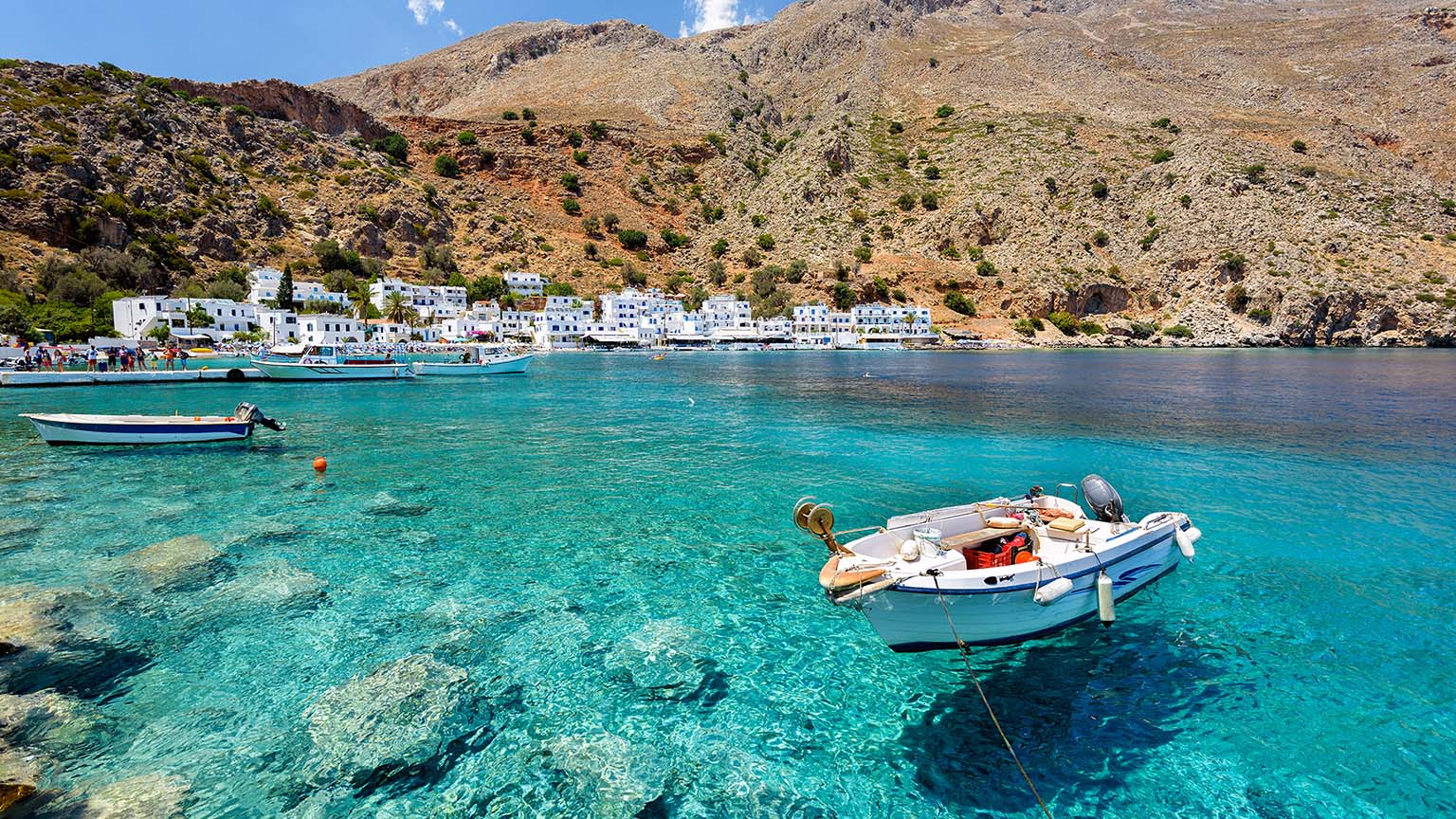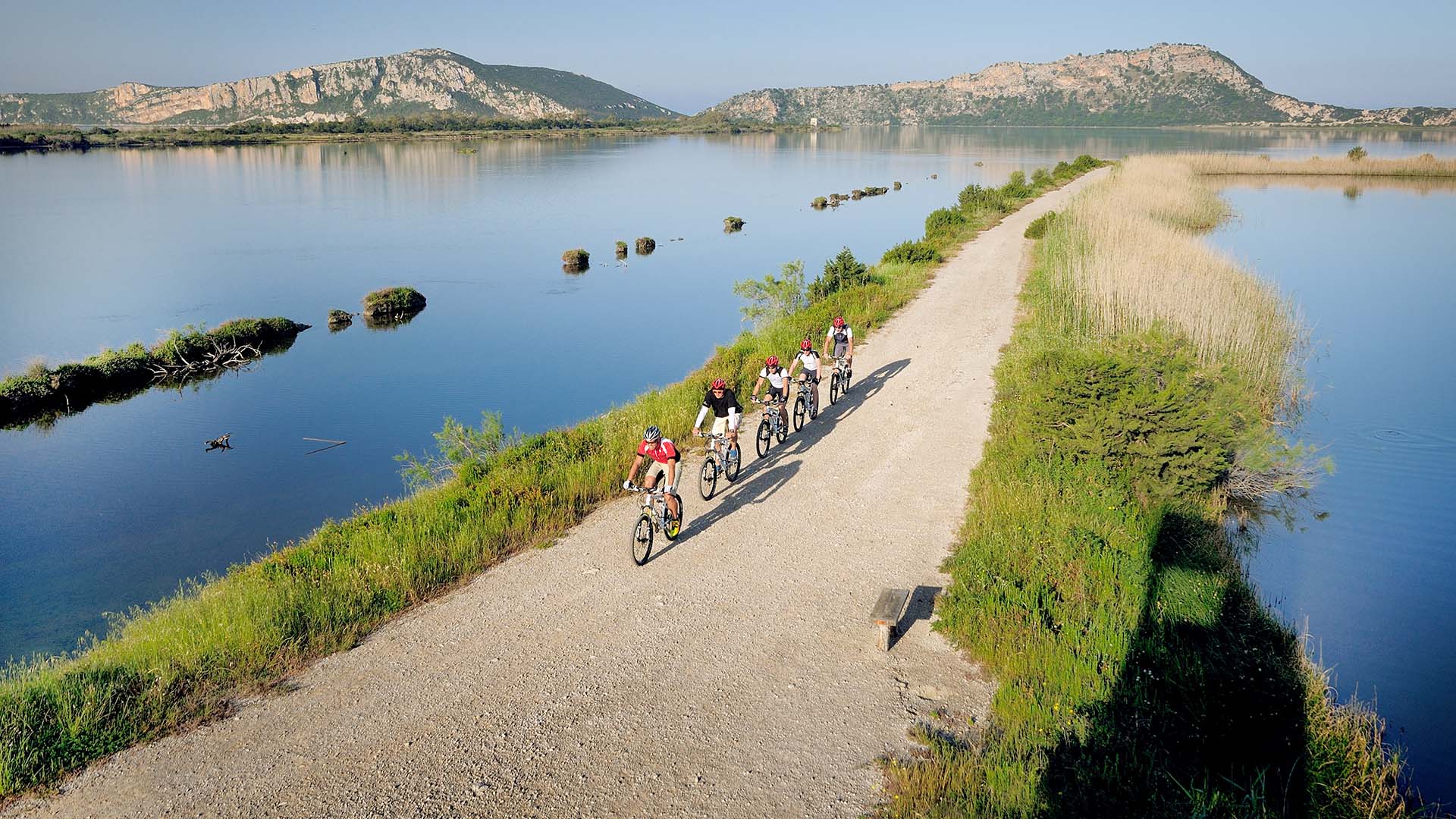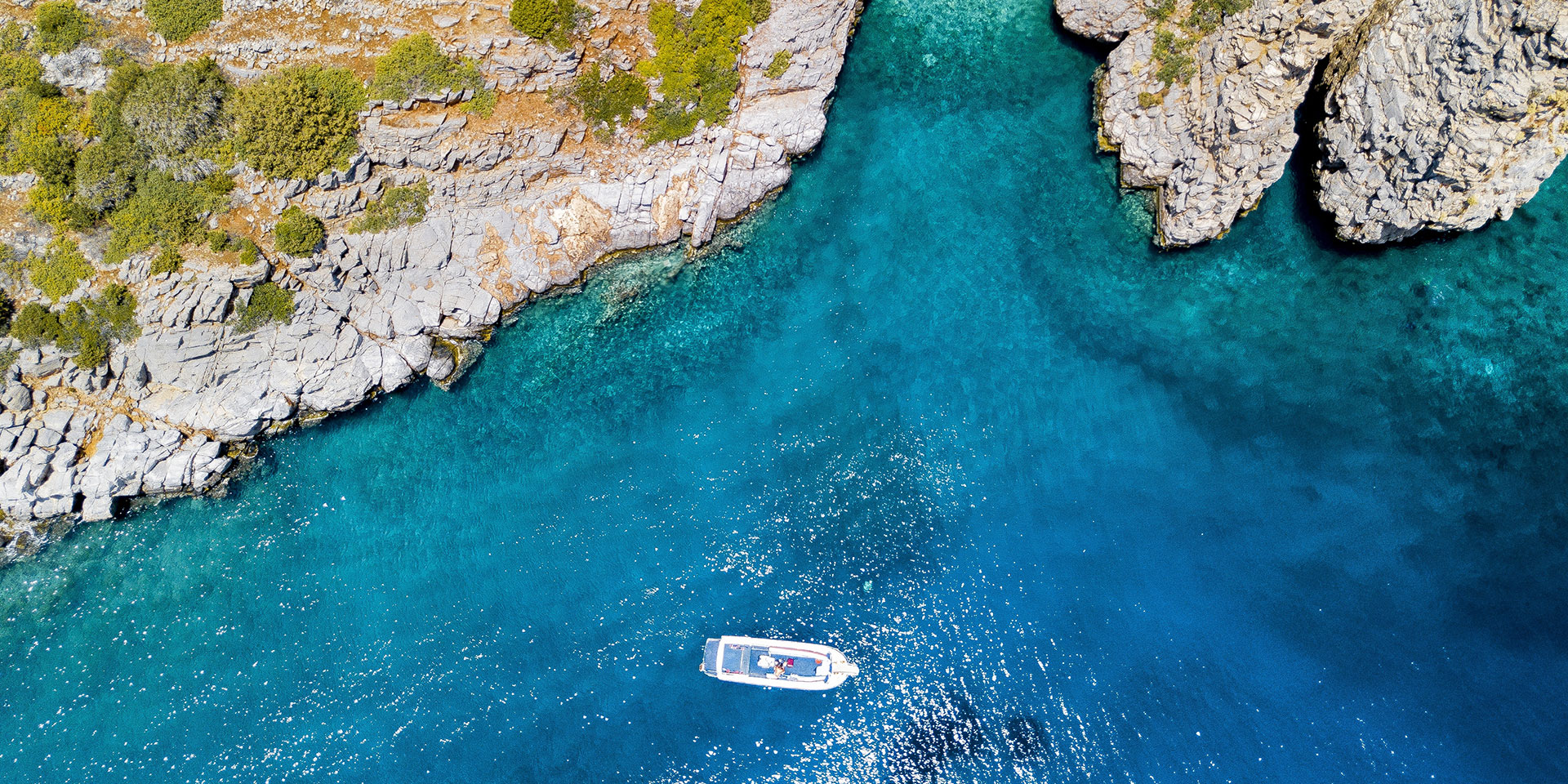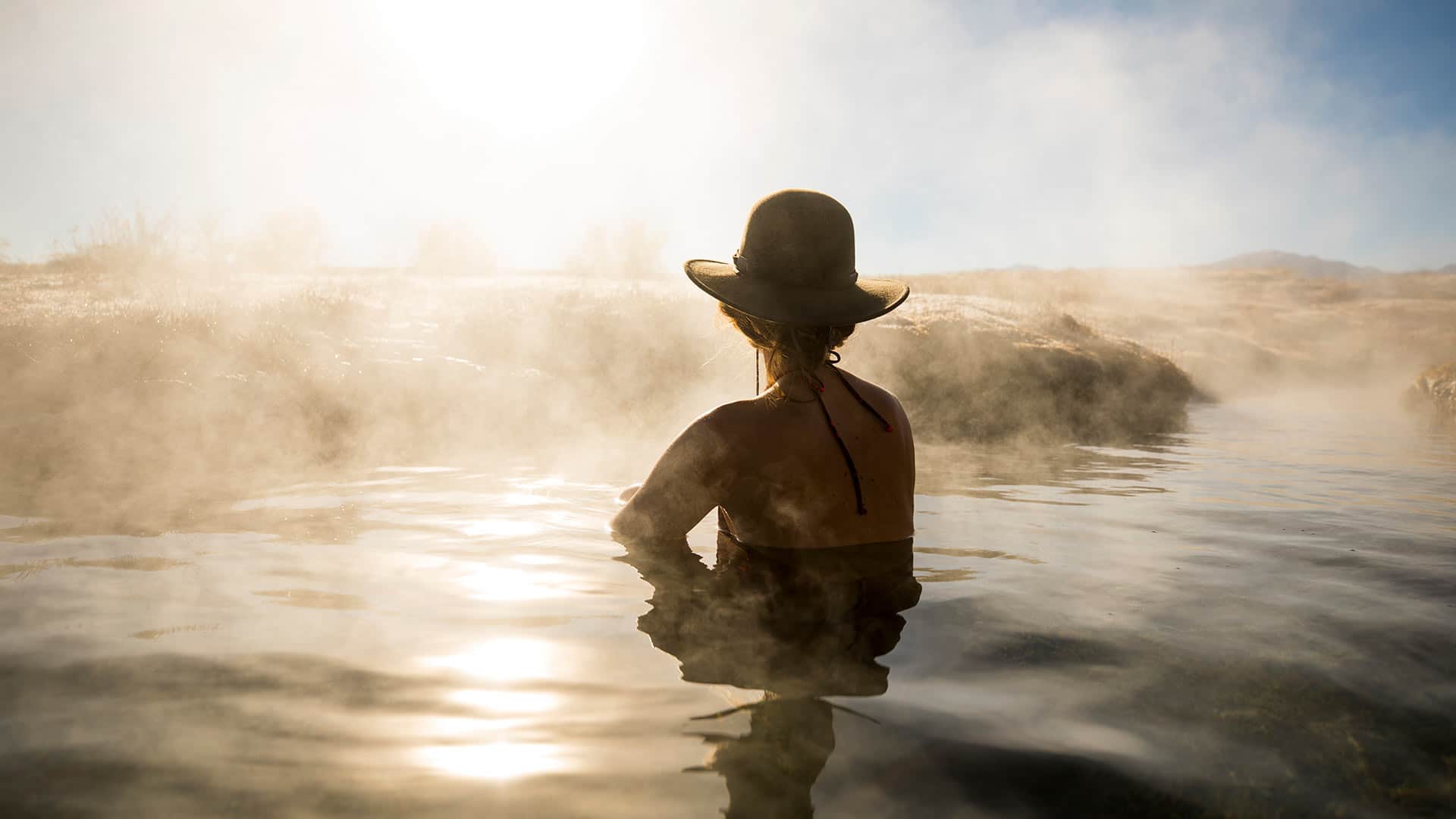
Greece’s thermal springs provide opportunity to reflect — and heal. (Photo: Getty Images)
ViewpointsHow a Dip in Greece’s Historical Hot Springs Heals Body and Soul
By Heidi Fuller-loveAn icy wind whistles in my ears as I furiously pedal my bicycle to reach a remote pier in the Greek village of Edipsos before sunset. Abandoning my bike under a fig tree, I trip down a few steps, hang my clothes on a nail — conveniently stuck in the wall at head height — and slither over to a steaming stone basin, which stands in isolation here on Evia Island, perched above the storm-ragged sea.
Carved out of the rocks by the Romans, the tublike basin is fed by mineral waters that gush out at a temperature of 38 degrees Celsius (100 F) from a cleft in the rocks above. Wallowing in the sulfur-scented waters I’m gripped by a sense of timelessness as I watch the sun sink like a scarlet egg over this bay in southeastern Greece where, according to ancient mythology, King Agamemnon once sheltered with his fleet before heading out to wage war on Troy.
I’m not alone in loving Greece’s smelly, but oh-so-healthy, thermal waters: Greek gods ranging from medicine man Asclepius to muscle man Hercules were depicted as big fans of Greece’s mineral-rich springs, and legendary beauty Cleopatra swore by the anti-aging properties of the country’s thermal mud wraps
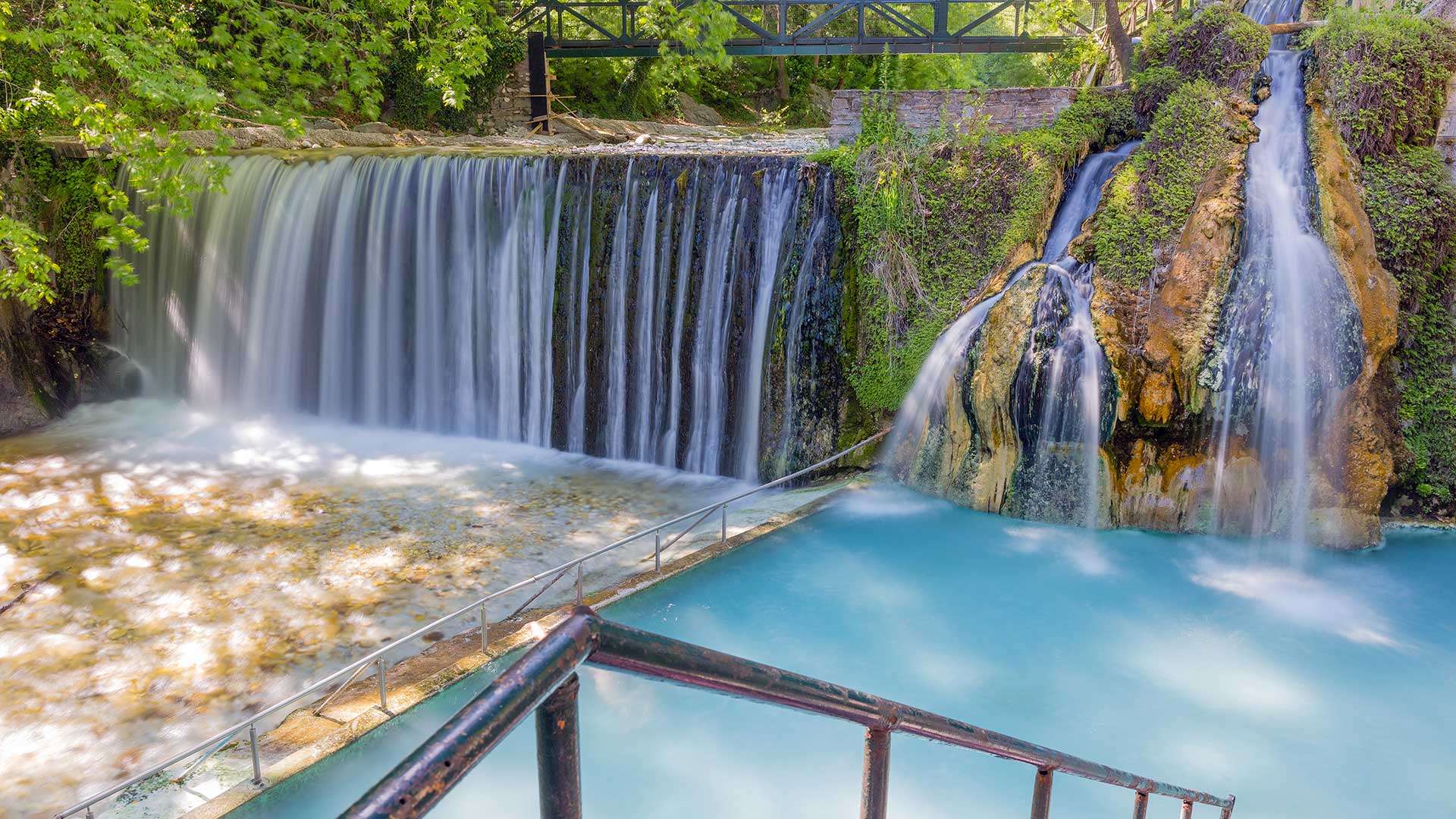
There are more than 700 of these therapeutic hot springs — said to cure everything from eczema to heart disease — dotted across Greece. Because many of them — including Pozar, near the birthplace of Alexander the Great, and Loutraki, close to the ancient town of Corinth — are situated within easy reach of some of the country’s best-known archaeological sites, visiting them is a great way to get a dose of history with your heal.
Still, the springs’ primary draw is their alleged curative power — for both body and mind. In fact, Hippocrates, the founder of modern medicine, recommended a dip in the hot spring baths to treat melancholia, better known nowadays as depression.
Grieving from a recent bereavement myself, I’m deeply drawn by the mythical healing powers of these hot water sources. After spending a week in spectacular Santorini, I’ve hired a car in Athens and plan to see if I can heal my soul on a road trip to visit three of these supposedly miraculous sites.
It’s a two-hour drive from Athens to the tiny seaside resort of Glifa, where a ferry whisks me over the water to Edipsos. Legend has it that here in Edipsos — the ancient Euboea of Homer’s “Iliad” — the Roman general Sulla was cured of a mysterious skin disease after soaking in some of the island’s 80-plus hot springs. Though he’s not the only person of historic note to seek healing in the 28–36 C (82–97 F) waters.
Celebrities ranging from cigar-puffing politician Winston Churchill to reclusive movie star Greta Garbo once came to Edipsos to take the waters, as well.
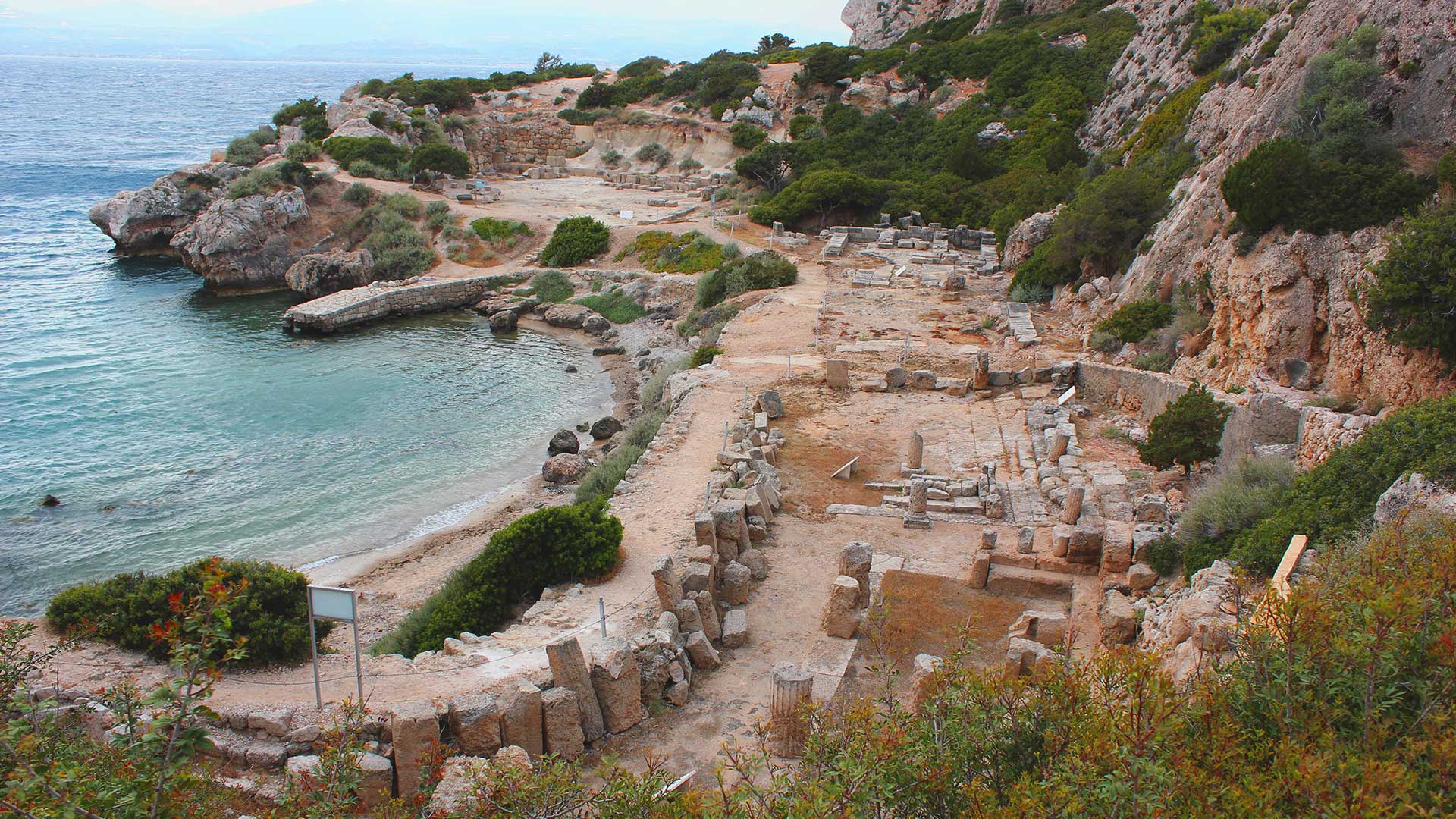
I book a skin-toning seaweed wrap and an hour in the jetted hot spring pool at Thermae Sylla and afterward am ravenous. Cycling through feathered sheets of steam rising from hot springs that crisscross Edipsos’ cobbled streets, I head to Maravelis, a small tavern on the seafront, where I devour Evia’s speciality, kourkoubines, a pasta topped with a succulent chicken, mushroom and wine sauce.
The following day, a brisk breeze riffles the Euboean Gulf as the ferry carries me back to the mainland. In a small café near Kamena Vourla, I eat breakfast. Soothed by the hot springs and sunshine, my mood lifts like a roller blind. Forgetting sad thoughts, I sit for more than an hour watching fishing boats churn across the bay and sip syrupy ellinikos kafés (Greek coffee) served with wedges of karidopita, the region’s honey-sweetened walnut cake.
Later that day I drive 20 minutes east to Thermopylae, where a mighty bronze statue commemorates Leonidas, the Spartan king who famously fought to the death in a vain attempt to prevent the Persians from invading Greece.
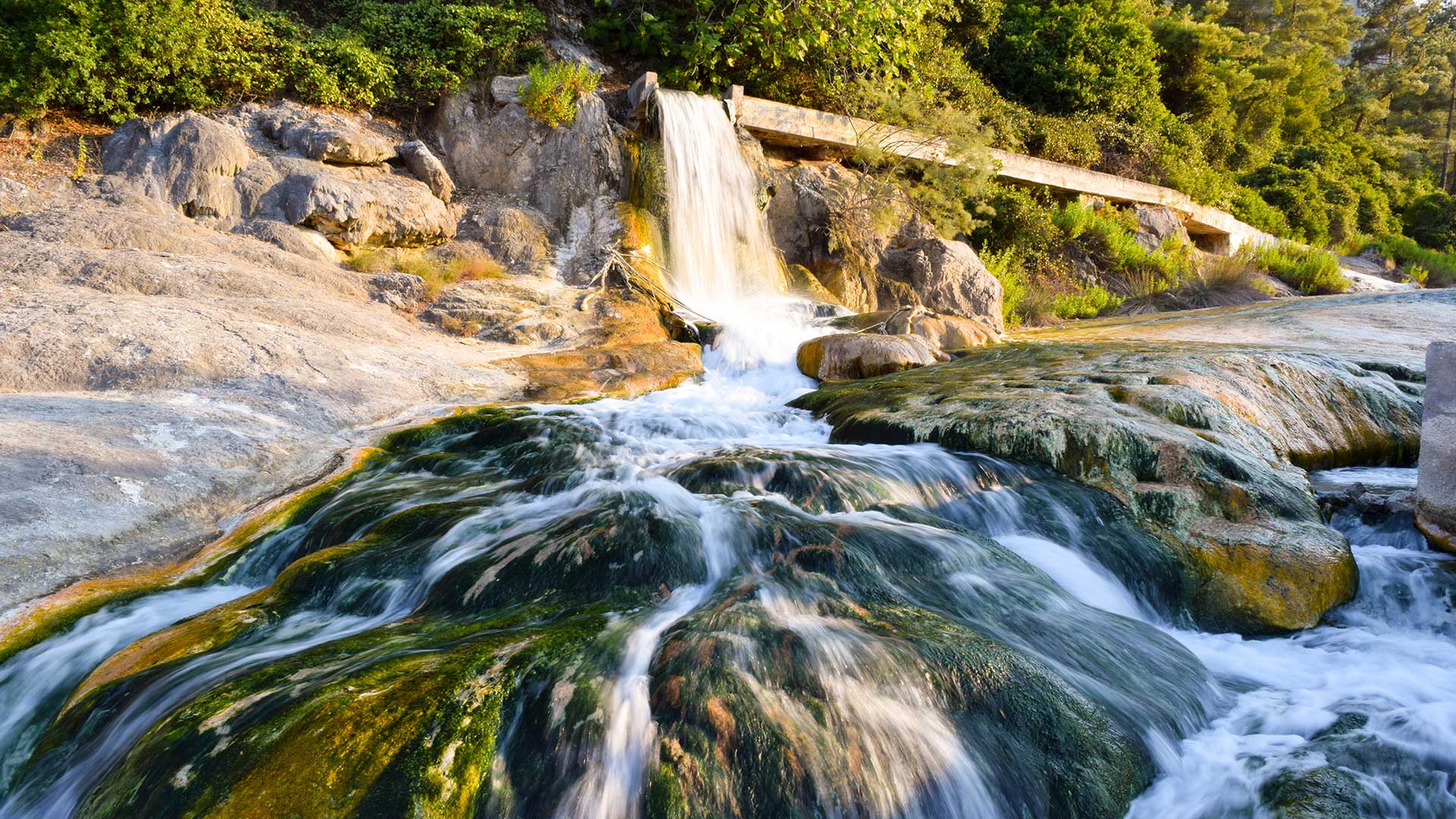
Apart from being a legendary battle site, Thermopylae is also home to one of the country’s most spectacular hot springs, which thunders from a sheer cliff face down to a brilliant green river beneath. Veiled in a filmy haze, the steaming waters shimmer like goddess Hecate’s supernatural mist — said to prevent mortals from seeing monsters.
I curl up in the thundering water, letting it pound my back, my thighs, my shoulders. Gasping at the heat and power and noise, I give myself up to this mineral-rich waterfall where mythical Hercules once bathed to recover from his trials — and where I hope to recuperate from my own.
From Thermopylae the following day, a looping road leads me, via mountain villages and pebbled sea coves, to Vouliagmeni — a short drive from Athens. Legend says mythical enchantress Medea took revenge on her unfaithful husband, Jason, by murdering their children and burying them here. Luckily, this pretty seaside suburb backed by the mighty Hymettus Mountain bears little trace of Medea’s violent act.
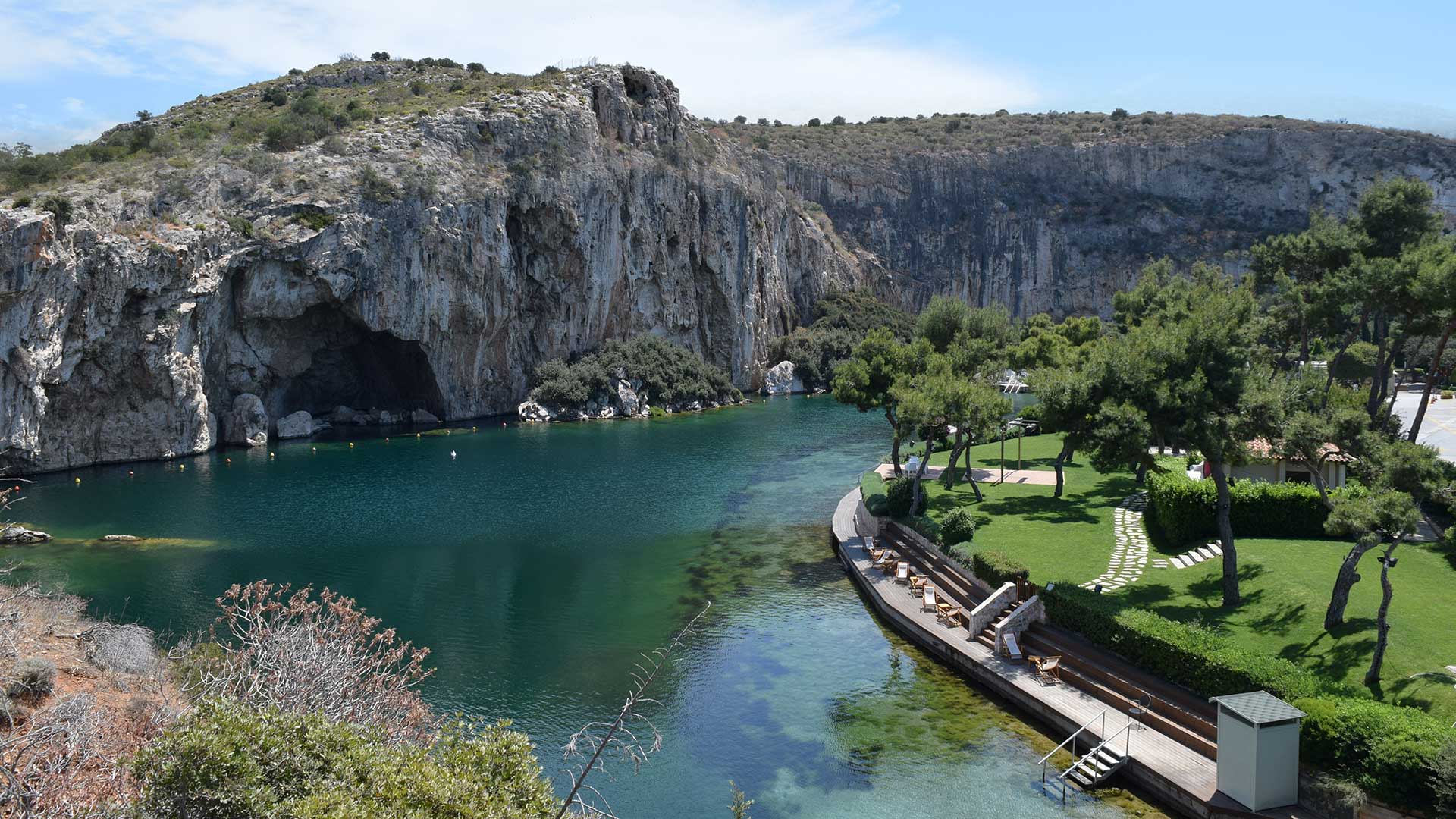
My final destination is Vouliagmeni’s lake, just outside of town. Framed by salmon-colored cliffs and fringed by citrus-scented pine trees, the emerald lake is actually a sunken cave fed by hot spring waters that bubble up from deep within the surrounding mountains.
I float for an hour in the dense green lake, which is supercharged with minerals, including potassium, lithium and calcium. It’s so cold I can see my breath rising like spirit mist toward the blue vault of sky above, but the bath-warm waters are blissfully comforting.
After three days of bathing in hot springs I’m exhausted, but that night for the first time in weeks I sleep soundly. And when I wake the next morning, just as Hippocrates predicted, there’s hope once more in my heart.





